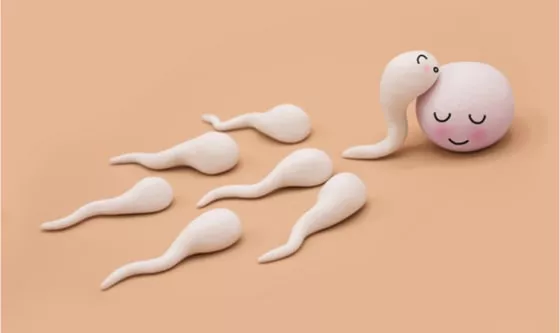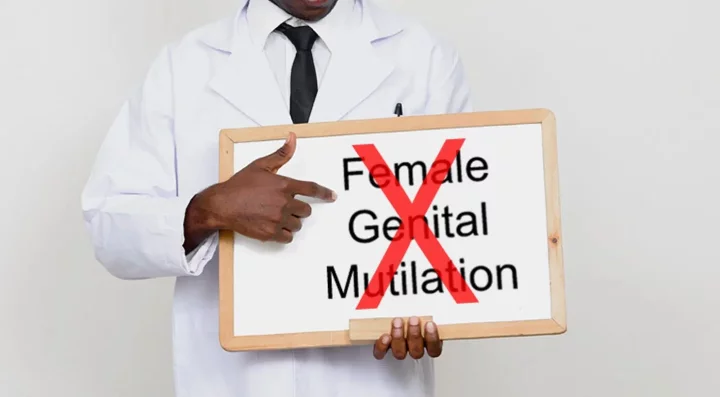
Women's sexual desires naturally fluctuate over the years. Highs and lows commonly coincide with the beginning or end of a relationship or with major life changes, such as pregnancy, menopause or illness. Here are the major causes and how to conquer them for a better sex life!
Since sexual satisfaction plays a crucial part in a women's physical and mental well-being, problems with low sex drive deserve an equal amount of attention and treatment as any other physical or mental illness.
How do you know if your sex drive is low?
Naturally, you will know if your sex drive is not operating as it usually does. If you want to have sex less often than your partner does or avoiding intimacy with your partner, especially when the both of you are in your prime sexual peaks, there may be an underlying issue that needs to be addressed.
Similarly, even if your sex drive is weaker than it once was, your relationship may be stronger than ever. At the end of it all, there is no magic formula for defining low sex drive. It varies between women however there are some key indicators that you can be mindful of.
Symptoms of low sex drive in women include:
Having no interest in any type of sexual activity, including masturbation
Never or rarely having sexual fantasies or thoughts
Being concerned by your lack of sexual activity or fantasies
Sex drive issues in various forms affect nearly 50% of women. Relationship issues, anger, and resentment towards themselves can all result from unaddressed sex drive issues.
Desire for sex is based on a complex concoction of many things affecting intimacy, including physical and emotional well-being, experiences, beliefs, lifestyle, and your current relationship. If you're experiencing a problem in any of these areas, it can affect your desire for sex. As a result, there is no straightforward answer for your problems surrounding sexual desire, it is all intense personal and understanding it will take a lot of self-awareness, honesty and introspection. Until you're ready to be honest with yourself about WHY you may be struggling, you will never reach a solution.
If your background and upbringing included fostering shame towards your body, or subtle messages that having sexual desires is in some way wrong or immoral, you are most likely to experience low sex drive. This is often the case for many women coming from highly religious backgrounds who have developed complexes surrounding sex due to their upbringing and conditioning.
So, what are some of the common causes of low sex drive for women who suffer from it?
Physical causes
There are a variety of illnesses, physical changes and prescription medication that can cause low sex drive, for example:
Sexual problems. If you have pain during sex or can't orgasm, it can reduce your desire for sex.[/b]
Medical diseases. Many nonsexual diseases can affect sex drive, including arthritis, cancer, diabetes, high blood pressure, coronary artery disease and neurological diseases.[/b]
Medications. Certain prescription drugs, especially antidepressants called selective serotonin reuptake inhibitors, are known to lower the sex drive.[/b]
Lifestyle habits. A glass of wine may put you in the mood, but too much alcohol can affect your sex drive. The same is true of street drugs. Also, smoking decreases blood flow, which may dull arousal.[/b]
Surgery. Any surgery related to your breasts or genital tract can affect your body image, sexual function and desire for sex.[/b]
Fatigue. Exhaustion from caring for young children or aging parents can contribute to low sex drive. Fatigue from illness or surgery also can play a role in a low sex drive.[/b]
Stress
Stress is one of the most frequent causes of low sex drive. Common stressors can unknowingly have physical and psychological effects too.
These include:
Financial problems: debt, low income.
Stress at work: hostile and dysfunctional work environment, long hours, overworking, lack of motivation and appreciation for the made efforts.
Relationship problems: unaddressed relationship issues, lack of communication about sex, lack of emotional support.
Family issues: parenting and pregnancy, or not having enough help and support with children and housework.
Depression
Depression is so much more than simply feeling unhappy, miserable or fed up for a short while. It's a serious illness that interferes with all aspects of your life, including your sex life.
In addition to low libido, signs of depression can include:
feelings of extreme sadness that don't go away
feeling low or hopeless
losing interest or pleasure in doing things you used to enjoy
Age
A reduced sex drive isn't an inevitable part of ageing, but it's something many men and women experience as they get older, especially when women reach menopause.
There can be many reasons for this, including:
falling levels of sex hormones (oestrogen and testosterone) just before, during and after the menopause in women
falling levels of sex hormones (testosterone) in men
age-related health problems, including mobility problems
side effects of medication
Treatment
If the problems are identified to be stress, age or relationship-based, as identified above, there are several approaches that may help.
Your doctor may suggest counseling in order to overcome any issues that may be affecting your relationship. For this to be effective, it is vital that you and your partner work as a team with a therapist to resolve any potential issues. A therapist can help teach you how to better communicate with your partner and suggest sexual techniques that will make your feel closer.
Lifestyle changes such as exercising regularly, avoiding smoking and alcohol, and as well as setting aside time to be intimate with your partner all help alleviate stress and improve libido.
Due to a reduction of blood flow to the vagina, many premenopausal and postmenopausal women undergo changes in oestrogen levels. If low oestrogen levels are the cause of your HSDD symptoms, then your doctor may recommend estrogen therapy using a cream, suppository, or ring that releases estrogen in the vagina without the unwanted side effects that come with estrogen pills.
















Comments